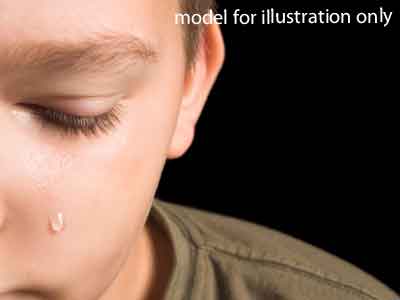Levels of economic freedom have decreased around the globe, according to a new report released today by the Fraser Institute, Canada’s leading public policy think-tank.
Economic Freedom of the World: 2011 Annual Report shows that the average economic freedom score fell to 6.64 in 2009, the lowest in nearly three decades, from 6.67 in 2008.
The United States in particular dropped from No. 6 to No. 10 in the ranking.
“The big news this year is that economic freedom in the United States continues to fall,” said SMU economist Robert A. Lawson, an author on the research who has helped compile the annual report since 1997. “For the last decade the United States’ rating has been falling. On our 0-to-10 scale, the U.S. rating has fallen by about a point. This is a big change. In fact for the first time ever Canada ranks higher than the United States.”
The global average also is falling, Lawson said. For the past two years it’s fallen after rising for the last 20 to 30 years, he said.
“This is really important because all of the research that we have done and that others have done tells us one thing: Economic freedom really matters,” Lawson said.
To do well on the index, a country’s taxes must be low, regulations moderate, property rights secure and money sound, with free trade domestically and abroad.
“In response to the American and European debt crises, governments around the world are embracing perverse regulations and this has huge, negative implications for economic freedom and financial recovery,” said Fred McMahon, Fraser Institute vice-president of international policy research.
Hong Kong again ranked number one for economic freedom, followed by Singapore and New Zealand, Switzerland, and Australia.
The United States experienced one of the largest drops in economic freedom, falling to 10th place overall from sixth in 2010. Much of this decline is a result of higher spending and borrowing on the part of the U.S. government, and lower scores for legal structure and property rights, the authors said.
Zimbabwe once again received the worst score among the 141 jurisdictions included in the study, followed by Myanmar, Venezuela and Angola.
“The link between economic freedom and prosperity is undeniable: the countries that score highly in terms of economic freedom also offer their people the best quality of life,” McMahon said.
“The political uprisings sweeping across the Arab World are the result of people wanting the outcomes of economic freedom — prosperity, job growth, political freedoms and poverty reduction,” he said.
The annual peer-reviewed Economic Freedom of the World report is produced by the Fraser Institute, Canada’s leading public policy think-tank, in cooperation with independent institutes in 85 nations and territories.
In addition to Lawson, other authors are James Gwartney, Gus A. Stavros Eminent Scholar Chair at Florida State University; and Joshua Hall, Beloit College.
The report uses 42 different measures to create an index ranking of 141 countries around the world based on policies that encourage economic freedom. The cornerstones of economic freedom are personal choice, voluntary exchange, freedom to compete and security of private property. Economic freedom is measured in five different areas: (1) size of government, (2) legal structure and security of property rights, (3) access to sound money, (4) freedom to trade internationally, and (5) regulation of credit, labor and business.
Research shows that individuals living in countries with high levels of economic freedom enjoy higher levels of prosperity, greater individual freedoms and longer life spans.
International Rankings
Hong Kong offers the highest level of economic freedom worldwide, with a score of 9.01 out of 10. The other top scorers are Singapore (8.68), New Zealand (8.20), Switzerland (8.03), Australia (7.98), Canada (7.81), Chile (7.77), the United Kingdom (7.71), Mauritius (7.67) and the United States (7.60).
The rankings and scores of other large economies include: Germany, 21st (7.45); Japan, 22nd (7.44); France, 42nd (7.16); Italy, 70th (6.81); Mexico, 75th (6.74); Russia, 81st (6.55); China, 92nd (6.43); India, 94th (6.40); and Brazil, 102nd (6.19).
Zimbabwe maintains the lowest level of economic freedom among the 141 jurisdictions measured. Myanmar, Venezuela, Angola and Democratic Republic of Congo round out the bottom five nations.
Several countries have substantially increased their economic freedom scores since 1990. Uganda saw the biggest improvement, climbing to 7.10 this year from 3.00 in 1990, followed by Zambia, which rose to 7.35 from 3.52; Nicaragua, which jumped to 6.76 from 2.96; Albania, which climbed to 7.54 from 4.24; and Peru, which increased to 7.29 from 4.13.
Over the same period, economic freedom has steadily regressed in Venezuela, whose score fell to 4.23 from 5.45; Zimbabwe, which dropped to 4.06 from 5.05; the United States, which slipped to 7.58 from 8.43; and Malaysia, which fell to 6.68 from 7.49.
The report notes that among the highest-ranked countries, the average income of the poorest 10 per cent of people was $8,735 (in constant 2005 international dollars), compared to a meagre $1,061 for those living in the least economically free countries.
On average, the poorest 10 per cent of people in the most economically free countries are nearly twice as rich as the average population of the least economically free nations.
About the Economic Freedom Index
Economic Freedom of the World measures the degree to which the policies and institutions of countries are supportive of economic freedom.
This year’s publication ranks 141 nations representing 95 percent of the world’s population for 2009, the most recent year for which data is available. The report also updates data in earlier reports in instances where data have been revised.
For more information on the Economic Freedom Network, data sets, and previous Economic Freedom of the World reports, visit www.freetheworld.com
SMU’s Lawson is in the Cox School of Business as the Jerome M. Fullinwider Chair in Economic Freedom, O’Neil Center for Global Markets and Freedom. — Fraser Institute and Southern Methodist University.
SMU is a nationally ranked private university in Dallas founded 100 years ago. Today, SMU enrolls nearly 11,000 students who benefit from the academic opportunities and international reach of seven degree-granting schools. For more information see www.smu.edu.
SMU has an uplink facility located on campus for live TV, radio, or online interviews. To speak with an SMU expert or book an SMU guest in the studio, call SMU News & Communications at 214-768-7650.











